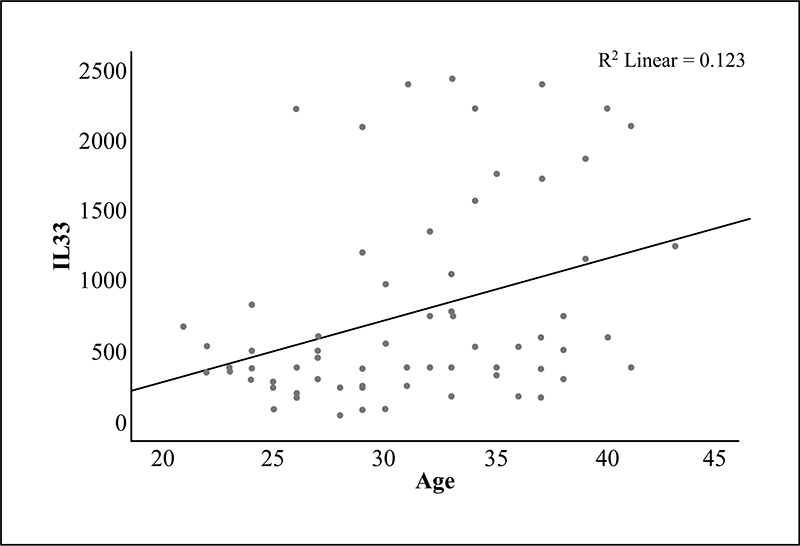European Cytokine Network
MENUAssociation of Interleukin-33 with Recurrent Pregnancy Loss in Egyptian Women Volume 33, issue 2, 2022-06-01
Figures
Tables
- Key words: interleukin-33, recurrent pregnancy loss, biomarker
- DOI : 10.1684/ecn.2022.0478
- Page(s) : 13-8
- Published in: 2022
Background
A successful pregnancy requires a distinct and complex immunological state. Cytokines appear to be critical for the establishment of a tolerogenic environment towards the semi-allogenic foetus during the foeto-maternal interphase, and a shift from a Th1- to a Th2-cytokine profile may be crucial. An imbalance of cytokines can be a significant factor in recurrent pregnancy loss (RPL). Interleukin-33 (IL-33) is a member of the IL- 1 cytokine family, involved in both the innate and adaptive immune responses coordinating immune cell function for a broad range of physiological and pathological processes, including the regulation of pregnancy outcome.
Objectives
The aim of this study was to investigate a possible association between IL-33 and RPL in Egyptian women.
Methods
The study was conducted on 66 Egyptian females recruited from Ain Shams University Specialized Hospital and 66 matched healthy non-pregnant females of typical childbearing age without a history of RPL. Serum IL-33 was measured in all subjects using a sandwich ELISA technique.
Results
Serum IL-33 levels were significantly higher in patients with RPL than in the healthy control group. In addition, in the patient group, there was a positive correlation between serum IL-33 level and both age and number of miscarriages and a negative correlation between serum IL-33 level and the number of deliveries.
Conclusion
In Egyptian women, serum levels of IL-33 are associated with RPL, thus IL-33 level could be a predictive biomarker for RPL in early pregnancy.







